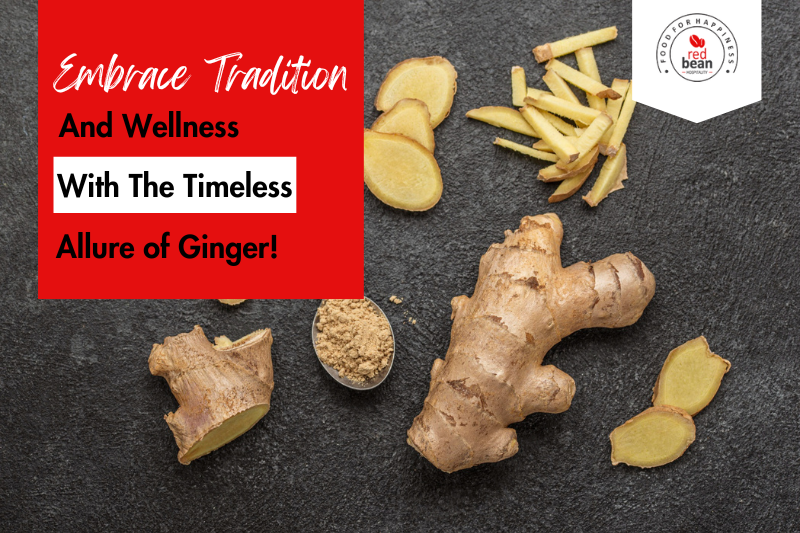
06 May 2024 17:44 PM
Few ingredients have the variety, depth, and zing that ginger has in the wide world of culinary miracles. From its origins in traditional medical applications to its widespread use in international cuisines, ginger has earned its reputation as a popular spice and herbal cure. Come along with me as we explore the fascinating world of ginger, learning about its varied applications outside of the kitchen, its lengthy history, and its astounding list of health advantages.
Understanding ginger's history is crucial to appreciating its effects. Ginger (Zingiber officinale), which is said to have originated in Southeast Asia, has been grown for thousands of years for both culinary and medicinal uses. Ginger was prized by ancient societies, such as the Chinese and Indians, for both its unique flavor and its supposed medicinal benefits. With time, ginger's renown expanded to all continents, and its culinary customs varied according to the culture utilizing it.
Ginger's ability to enhance food flavors with its unique aroma and taste is one of its most remarkable qualities. Ginger, whether it is used fresh, dried, or powdered, gives both savory and sweet recipes a pleasant warmth and richness. Asian cuisines frequently feature ginger as the main ingredient in stir-fries, curries, and soups, where it adds a burst of color and a hint of spice. In contrast, ginger is used in Western cookery to flavor a wide range of foods, including marinades for meats and salad dressings, as well as baked products like gingerbread and cookies.
Ginger's therapeutic qualities are just as remarkable as its culinary abilities. Because ginger contains strong anti-inflammatory and antioxidant properties, it has been used in traditional medicine for ages to treat a wide range of illnesses. Ginger has established itself as a go-to natural treatment for a variety of medical conditions, from calming upset tummies to relieving tight muscles.
Ginger is a useful tool for treating morning sickness during pregnancy and relieving motion sickness during travel, as studies have shown that it may help reduce nausea. Furthermore, because of its anti-inflammatory qualities, it is a viable alternative for people with rheumatoid arthritis or osteoarthritis, providing pain and swelling relief.
Furthermore, by increasing the synthesis of digestive enzymes and lowering gastrointestinal discomfort, ginger has been connected to better digestion. For those who are suffering from indigestion, bloating, or other digestive issues, this makes it very helpful.
Ginger is still a reliable ally in enhancing both taste and health in equal measure as our knowledge of nutrition and well-being expands. With more studies revealing its many health advantages, ginger is sure to continue being a popular spice and herbal medicine for many years to come.
Conclusion
Ginger is a wonderful gem in a world full of culinary delights and natural medicines. It's a mainstay in medicine cabinets and kitchens alike due to its vivid flavor, lengthy history, and remarkable health benefits. Across cultural boundaries, ginger offers a tempting cure for aches and pains as well as for adding flavor to your favorite meals. Therefore, the next time you go for a knob of ginger, relish not only its spicy flavor but also the centuries' worth of custom and knowledge that are crammed into every jagged bite.
Black-eyed beans, also known as cowpeas, are a staple in various cu...
Read More
Cayenne pepper, known for its fiery heat and vibrant red color, is ...
Read More
Broccoli is more than just a common vegetable; it's a powerhouse of...
Read More
Copyright © 2019 Red Bean Hospitality All Rights Reserved Terms & Conditions | Privacy Policy
Website Design & Developed By: Daksha Digitas